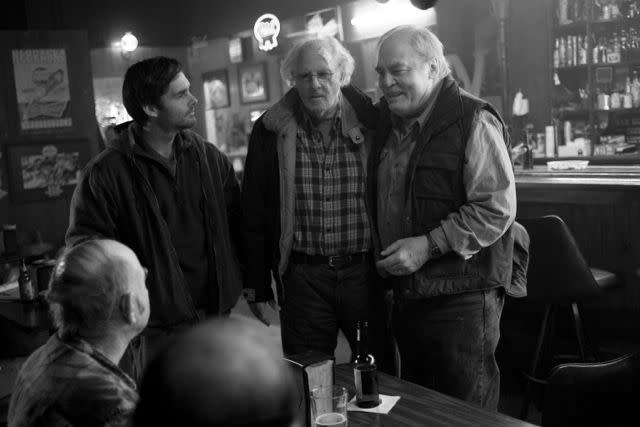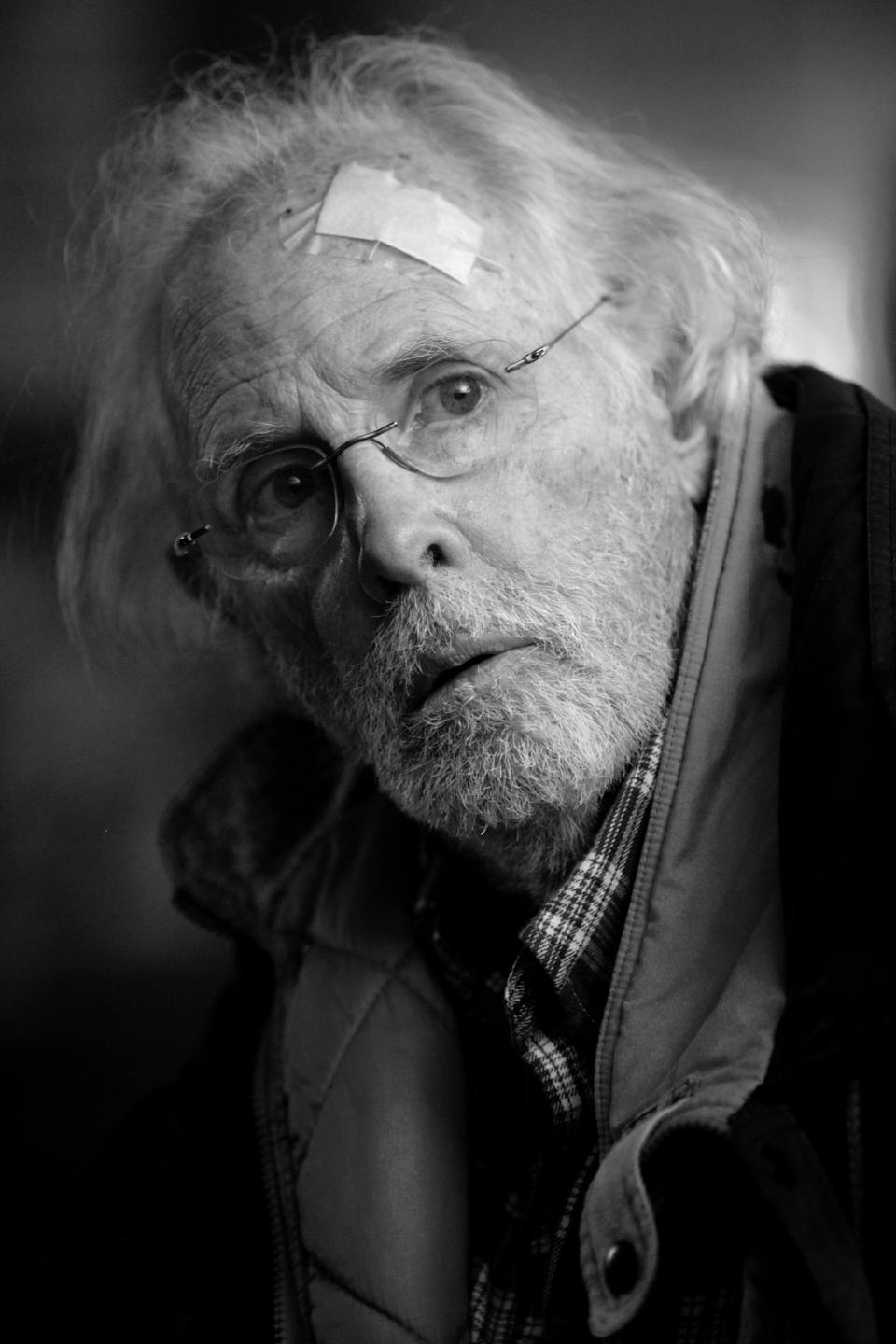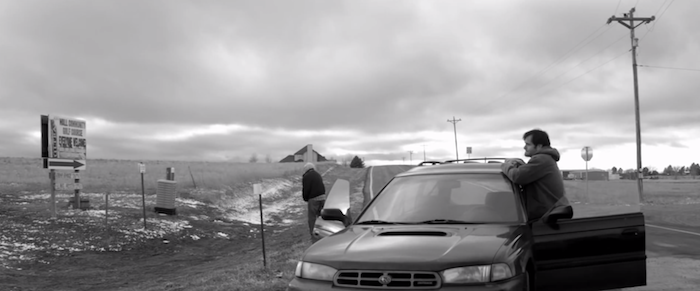OSCARS: Black And White Gives ‘Nebraska’ Its Color
AwardsLine deputy editor Anna Lisa Raya contributed to this report.
Everything old is new again for Nebraska cinematographer Phedon Papamichael, whose first film when he was just a kid back in the early 1980s was shot in 35mm black and white. As many established filmmakers have, Papamichael truly began his career working with producer Roger Corman as a director of photography and – just as others did before him — hit the ground running. He would end up shooting seven films in two years for Corman. Yes, seven. He has since gone on to work on such notables as 3:10 To Yuma and Walk The Line. But it is Nebraska, his third film with director Alexander Payne, that has earned him his first Academy Award nomination. Papamichael remembered how difficult it was for him and the director to get Paramount to agree to shooting the film in black and white. Payne already had had great critical success with their first collaboration, Sideways (which won Payne an adapted screenplay Oscar and a nom for best picture and director) when they spoke to the studio about Nebraska. Payne had envisioned the concept for this film as far back as 2004. He said that when they approached Paramount about financing Nebraska, the studio replied: “We’re going to support you. We know this is your thing.” And so [Payne] goes: “Great. And then, by the way, I want to do it in black and white.” … Then there was a silence in the room, and then the movie actually went away for a little bit.”
Related: OSCARS Q&A: Alexander Payne Returns Home For ‘Nebraska’
But after The Descendants, which again earned Payne best picture, director and writing Oscar noms (he won for the adapted screenplay), and also pulled in a hefty $177M worldwide, Paramount was more amenable to the idea. But they asked the filmmakers to make the film in color, saying it would not be able to show the film in certain markets and outlets (like HBO). But Papamichael pointed to films like Woody Allen’s Manhattan and Martin Scorsese’s Raging Bull as examples of black-and-white movies that play well in all formats. Papamichael said that after reading the script, “It felt different right from the beginning. It felt more cinematic. It definitely reminded me of Paper Moon,” the 1973 film from director Peter Bogdanovich. As they negotiated with the studio, Payne was asked to also consider making the film in “a rebate state,” which Nebraska wasn’t. Payne complied and went on a location scout in another state, but Papamichael said the director eventually came back and said, “You know, the movie is called Nebraska for a reason.” And so, after taking 10 days out of the schedule to get the budget where it needed to be, Paramount embraced and supported Nebraska, and Payne and Papamichael were ready to embark on their third film together.
Related: OSCARS: Producers Albert Berger & Ron Yerxa Talk ‘Nebraska’ And Re-Teaming With Alexander Payne
“I think it found its identity as it’s only imaginable in black and white and really it’s not just a stylistic choice,” Papamichael said. “It underlines all the themes of the film. I think it really supports the mood.” Indeed, the stark landscapes and big sky adds to the film’s theme of isolation and loneliness. There was a lot of attention placed on the framing because it carries a scene for a long period of time, the cinematographer said. “The graphic quality of the landscape gives you a sense of this vastness and this sort of abandoned society. It also helps you focus in on the subtleties of the performances. Bruce Dern’s little reactions. There’s great texture in his face, his white hair … because of his Bergman-esque sort of symbol of death without having the distraction of a multitude of color palettes.” Nebraska now joins an elite group of other contemporary black-and-white films including best picture Oscar winner The Artist, The White Ribbon, Goodnight, and Good Luck, The Man Who Wasn’t There, Schindler’s List, Zelig, Raging Bull, Lennie, The Last Picture Show, In Cold Blood and, of course, Paper Moon.
Related stories
2013 LA Film Critics: 'Gravity' & 'Her' Tie For Best Picture (Winners List)
Hammond On Cannes: Festival Kicks Off With Most Anticipated Slate In Years
OSCARS: The Challenge Of Sustaining Buzz Through A Long Awards Season
Get more from Deadline.com: Follow us on Twitter, Facebook, Newsletter

 Yahoo Movies
Yahoo Movies 


